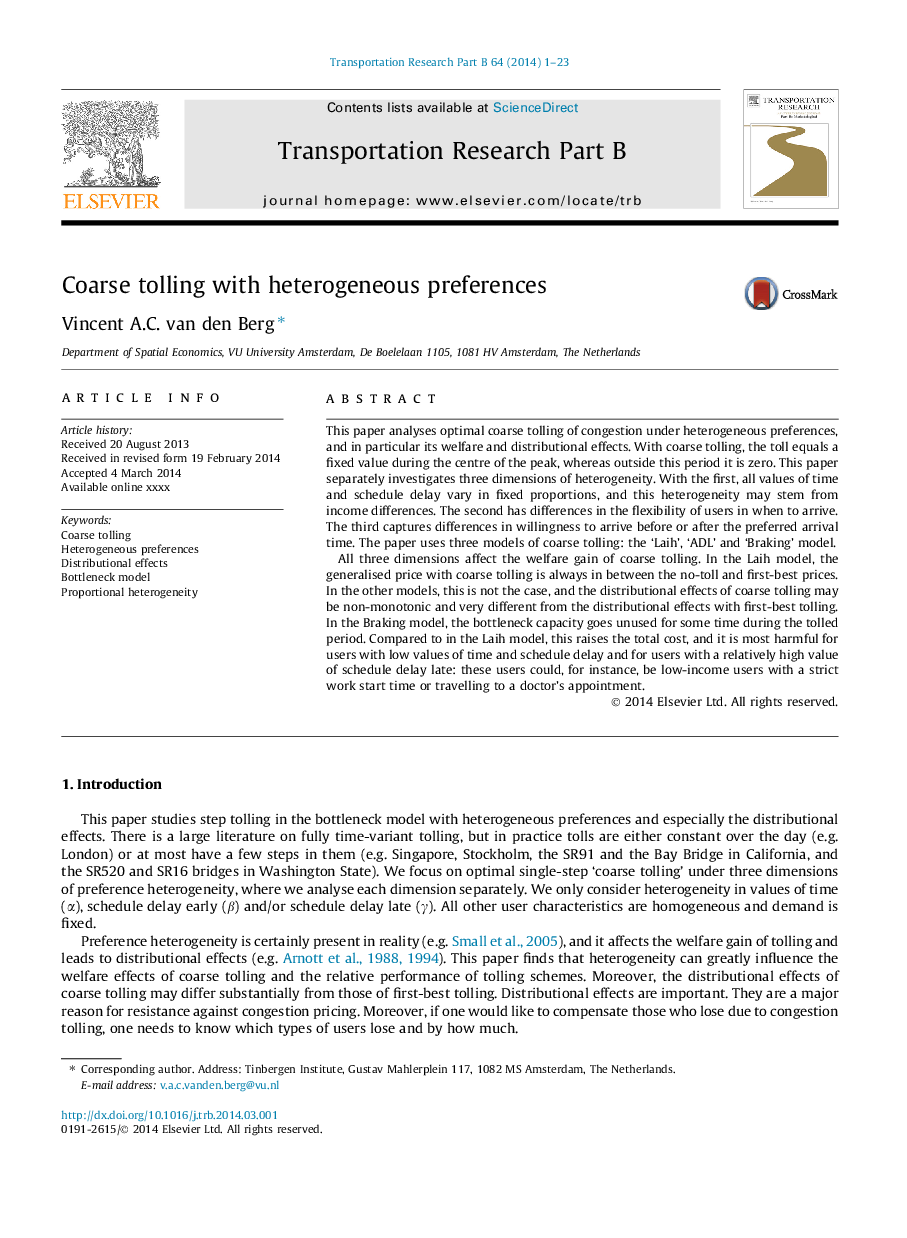| Article ID | Journal | Published Year | Pages | File Type |
|---|---|---|---|---|
| 1131911 | Transportation Research Part B: Methodological | 2014 | 23 Pages |
•We study coarse tolling of congestion under three dimensions of heterogeneity.•The three dimensions of heterogeneity have very different effects on tolling.•We use three behavioural models of coarse tolling in the bottleneck model.•The distributional effects of coarse tolling differ between the models.•They may also differ substantially from those with first-best pricing.
This paper analyses optimal coarse tolling of congestion under heterogeneous preferences, and in particular its welfare and distributional effects. With coarse tolling, the toll equals a fixed value during the centre of the peak, whereas outside this period it is zero. This paper separately investigates three dimensions of heterogeneity. With the first, all values of time and schedule delay vary in fixed proportions, and this heterogeneity may stem from income differences. The second has differences in the flexibility of users in when to arrive. The third captures differences in willingness to arrive before or after the preferred arrival time. The paper uses three models of coarse tolling: the ‘Laih’, ‘ADL’ and ‘Braking’ model.All three dimensions affect the welfare gain of coarse tolling. In the Laih model, the generalised price with coarse tolling is always in between the no-toll and first-best prices. In the other models, this is not the case, and the distributional effects of coarse tolling may be non-monotonic and very different from the distributional effects with first-best tolling. In the Braking model, the bottleneck capacity goes unused for some time during the tolled period. Compared to in the Laih model, this raises the total cost, and it is most harmful for users with low values of time and schedule delay and for users with a relatively high value of schedule delay late: these users could, for instance, be low-income users with a strict work start time or travelling to a doctor’s appointment.
